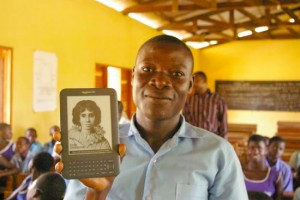I am Russell Southwood of Smart Monkey TV and in July, I was at the “How is ICT Impacting Education in Rwanda?” Tech Salon DC on the experience of using technology in education in Rwanda. Several of those who spoke emphasized the importance and centrality of the teacher in the education system.

The same thread was picked up in the “How Can ICTs Support Better Development Impacts for Children?” Tech Salon in London in August, where again development workers who were formerly teachers made broadly the same points.
Join us for the next Tech Salon – subscribe to get invited.
All over the world the public education system is fraying at the edges particular in poorer neighbourhoods, wherever they are. Teachers are understandably defensive when they are criticized for the lack of educational achievement of their students.
However, like many professions faced by these circumstances, change does not come easily to them. In the case of Africa, I have talked to an extremely wide range of people – both employers and individuals who have gone through the education systems in many countries.
There is one consistent thread in all these conversations: there is too much rote learning and not enough teaching of the ability to think critically and solve problems. Patrick Awuah of Ashesi University in the video clip interview articulates this point well (see video interview below):
After several minutes of former teachers ruminating somewhat defensively at the London Tech Salon, one contributor to the discussion pointed out that teachers were now facing the same sort of crisis of role that librarians faced some years back.
They had to learn how to be both guides and curators of information. They needed to provide structure to self-learning and expand curiosity. If that needs to happen globally, then nowhere is the need more acute than in African schools.
And what of the argument that there are better things to be spending money on in terms of African education than technology? Mark Bennett of iSchools says:
“We don’t need new buildings. We can teach more children [with technology] and can raise the standard of teaching. They will become used to thinking for themselves and become life-long learners. And all this can be done at a lower cost.”
This post is adapted from Education & Tech – The Start of the Self-Learning Revolution in African Schools